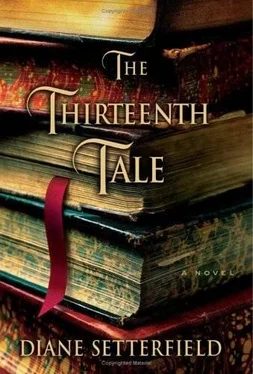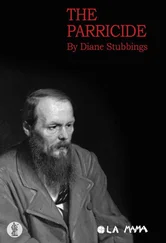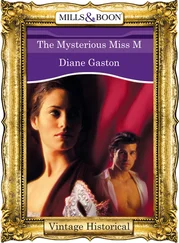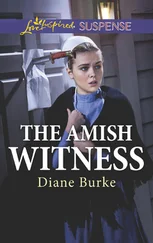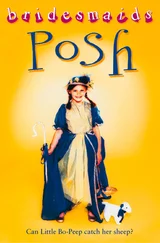Talking of John and the garden reminds me - I must speak to him about the boy. Walking about the schoolroom this afternoon, I happened to come near the window. It was raining, and I wanted to close the window so as not to let any more damp in; the window ledge on the inside is already crumbling away. If I hadn't been so close to the window, nose almost pressed to the glass, infact, I doubt I'd have seen him. But there he was: a boy, crouching in the flower bed, weeding. He was wearing a pair of men's trousers, cut off at the ankle and held up with a pair of braces. A wide-brimmed hat cast his face in shadow, and I was unable to get a clear impression of his age, though he might have been eleven or twelve. I know it is common practice in rural areas for children to engage in horticultural work, though I thought it was more commonly farmwork they did, and I appreciate the advantages of their learning their trade early, but I do not like to see any child out of school during school hours. I will speak to John about it and make sure he understands the boy must spend school hours in school.
But to return to my subject: Where Adeline's viciousness to her sister is concerned, she might be surprised to know it, but I have seen it all before. Jealousy and anger between siblings is commonplace, and in twins rivalries are frequently heightened. With time I will be able to minimise the aggression, but in the meantime constant vigilance is required to prevent Adeline hurting her sister, and this slows down progress on other fronts, which is a pity. Why Emmeline lets herself be beaten (and have her hairpulled out, and be chased by Adeline wielding the fire tongs in which she carries hot coals) I have yet to understand. She is twice the si^e of her sister and could defend herself more vigorously than she does. Perhaps she flinches from inflicting hurt on her sister; she is an affectionate soul.
My first judgment of Adeline in the early days was of a child who might not ever come to live as independent and normal a life as her sister, but who could be brought to a point of balance, of stability, and whose rages could be contained by the imposition of a strict routine. I did not expect ever to bring her to understanding. The task I foresaw was greater than for her sister, but I expected far less thanks for it, for it would seem less in the eyes of the world.
But I have been startled into modifying that opinion by signs of a dark and clouded intelligence. This morning she came into the classroom dragging her feet, but without the worst displays of unwillingness, and once in her seat, rested her head on her armjust as I have seen before. I began the lesson. It was nothing more than the telling of a story, an adaptation I had made for the purpose of the opening chapters o/"Jane Eyre, a story loved by a great many girls. I was concentrating on Emmeline, encouraging her to follow the story by animating it as much aspossible. I gave one voice to the heroine, another to the aunt, yet another to the cousin, and I accompanied the storytelling with such gestures and expressions as seemed to illustrate the emotions of the characters. Emmeline did not take her eyes off me, and I was pleased with my effect.
Out of the corner of my eye I caught a movement. Adeline had turned her head in my direction. Still her head rested on her arm, still her eyes appeared closed, yet I had the distinct impression she was listening to me. Even if the change of position was meaningless (and it was not; she has always turned awayfrom me before), there is the alteration in the way she held herself. Where she normally slumps over her desk when she sleeps, in a state of animal unconsciousness, today her whole body seemed alert: the set of the shoulders, a certain tension. As if she was straining toward the story, yet still trying to give the impression of inert slumber.
I did not want her to see that I had noticed anything. I continued to look as if I was reading only to Emmeline. I maintained the animation of my face and voice. But all the time I was keeping an eye on Adeline. And she wasn't only listening. I caught a quiver of her lids. I had thought her eyes closed, but not at all - from between her lashes, she was watching me!
It is a most interesting development, and one that I foresee will be the centerpin of my project here.
Then the most unexpected thing happened. The doctor's face changed. Yes, changed, before my very eyes. It was one of those moments when a face comes suddenly into new focus, when the features, all recognizably as they were before, are prone to a dizzying shift and present themselves in an unexpected new light. I would like to know what it is in a human mind that causes the faces of those we know to shift and dance about like that. I have ruled out optical effects, phenomena related to light and so on, and have arrived at the conclusion that the explanation is rooted in the psychology of the onlooker.
Anyway, the sudden movement and rearrangement of his facial features caused me to stare at him for a few moments, which must have seemed very strange to him. Whenhis features had ceased their jumping about, there was something odd in his expression, too, something I could not, cannotfathom. I do dislike whatI cannot fathom.
We stared at each otherfor a few seconds, each as awkward as the other, then rather abruptly he left.
I wish Mrs. Dunne would not move my books about. How many times shall I have to tell her that a book is notfinished until it isfinished? And if she must move it, why not put it back in the library whence it came? What is the point of leaving it on the staircase?
I have had a curious conversation with John the gardener.
He is a good worker, more cheerful now that his topiary is mending, and a helpful presence generally in the house. He drinks tea and chats in the kitchen with Mrs. Dunne; sometimes I come across them talking in low voices, which makes me think she is not as deaf as she makes out. Were it not for her great age I would imagine some love affair going on, but since that is out of the question I am at a loss to explain what their secret is. I taxed Mrs. Dunne with it, unhappily, because she and I have a friendly understanding about things for the most part; I think she approvesof my presence here - not that it would make any difference if she didn 't - and she told me that they talk of nothing but household matters, chickens to be killed, potatoes to be dug and the like. "Why talk so low?" I insisted, and she told me it was not low at all, at least not particularly so. "But you dont hear me when I talk low, " I said, and she answered that new voices are harder than the ones she is used to, and if she understands John when he talks low it is because she has known his voice for many years and mine for only a couple of months.
I had forgotten all about the low voices in the kitchen, until this new oddness with John. A few mornings ago I was taking awalk just before lunch in the garden when I saw again the boy who was weeding the flower bed beneath the schoolroom window. I glanced at my watch, and again it was in school hours. The boy did not see me, for I was hidden by the trees. I watched him for a moment or two,- he was not working at all but sprawled acrossthe lawn, engrossed in something on the grass, right under his nose. He wore the same floppy hat as before. I stepped toward him meaning to get his name and give him a lecture on the importance ofeducation, but on seeing me he leaped to his feet, clamped his hat to his head with one hand and sprinted awayfaster thanI have seen anyone move before. His alarm isproof enough of his guilt. The boy knew perfectly well he should be at school. As he ran off he appeared to have abook inhis hand.
Читать дальше
